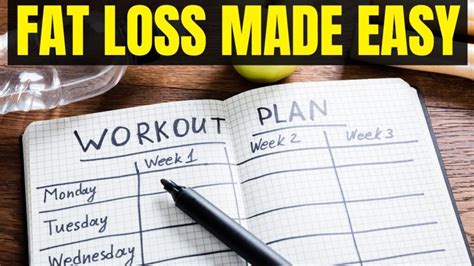The Dual Pursuit: Muscle Gain & Fat Loss Explained
For many men, the ultimate physique goal is a powerful combination: impressive lean muscle mass coupled with a low body fat percentage that reveals definition. This isn’t just about looking good; it’s about optimizing strength, performance, and overall health. While often seen as opposing goals – building muscle typically requires a caloric surplus, and losing fat a deficit – achieving both simultaneously, known as body recomposition, is entirely possible with a strategic approach.
Strategic Strength Training: Your Foundation
To build lean muscle and signal your body to retain it while cutting fat, strength training is non-negotiable. It’s the primary driver for muscle protein synthesis and has a significant metabolic impact.
Prioritize Compound Lifts
Focus your workouts around multi-joint exercises that recruit several muscle groups simultaneously. Think squats, deadlifts, bench presses, overhead presses, and rows. These movements are incredibly effective for stimulating growth, building functional strength, and burning more calories than isolation exercises.
Embrace Progressive Overload
Your muscles need a reason to grow. Continuously challenge them by gradually increasing the weight, reps, sets, or decreasing rest times. This progressive overload principle is fundamental for consistent muscle development.
Optimal Volume and Intensity
Aim for 3-5 strength training sessions per week, hitting each major muscle group 2-3 times. Work in rep ranges that support hypertrophy (muscle growth), typically 6-12 reps, but also include heavier sets (1-5 reps) for strength, and lighter sets (15-20 reps) for endurance and metabolic stress.

Precision Nutrition: Fueling Growth, Incinerating Fat
Nutrition is arguably the most critical component when aiming for body recomposition. It dictates whether you build muscle, lose fat, or both.
Caloric Control is Paramount
- For Fat Loss: A slight caloric deficit (200-500 calories below maintenance) is necessary to force your body to tap into fat stores for energy.
- For Muscle Gain: To build muscle efficiently, you need adequate energy. Aim for maintenance calories or a very slight surplus if you’re a hard gainer, but avoid a large surplus to minimize excess fat gain.
- Body Recomposition Sweet Spot: Many find success by eating at maintenance calories or cycling between slight deficits on rest days and maintenance/slight surplus on training days.
High Protein Intake
Protein is the building block of muscle and essential for repair and growth, especially in a deficit. Aim for 0.8-1 gram of protein per pound of body weight daily. Distribute your protein intake throughout the day with each meal.
Smart Carbohydrate and Fat Management
- Carbohydrates: Provide energy for intense workouts and replenish glycogen stores. Prioritize complex carbs like oats, rice, and whole grains. Timing a good portion of your carbs around your workouts can be beneficial.
- Fats: Essential for hormone production and overall health. Focus on healthy fats from sources like avocados, nuts, seeds, and olive oil.

The Role of Cardiovascular Training
While strength training is king, strategic cardio can accelerate fat loss without compromising muscle gains.
High-Intensity Interval Training (HIIT)
Short bursts of intense exercise followed by brief recovery periods. HIIT is time-efficient and excellent for calorie expenditure and improving cardiovascular fitness. Limit to 2-3 sessions per week to avoid overtraining.
Low-Intensity Steady State (LISS)
Activities like brisk walking or cycling at a moderate pace for longer durations. LISS is less taxing on the central nervous system and can be performed more frequently, making it great for active recovery and additional calorie burn.

Recovery: The Unsung Hero
Your muscles don’t grow in the gym; they grow during recovery. Neglecting recovery will undermine all your hard work.
Prioritize Quality Sleep
Aim for 7-9 hours of quality sleep per night. This is when your body repairs tissues, releases growth hormone, and regulates other crucial hormones like testosterone and cortisol, which are vital for muscle growth and fat loss.
Manage Stress
Chronic stress elevates cortisol levels, which can hinder fat loss and muscle gain. Incorporate stress-reducing activities like meditation, yoga, or spending time in nature.

Consistency, Patience, and Monitoring
Body recomposition is a marathon, not a sprint. Consistency is key, and results will come over time.
Track Your Progress
Keep a workout log, monitor your body measurements, take progress photos, and regularly assess your body composition. This feedback loop allows you to make informed adjustments to your training and nutrition.
Be Patient and Adjust
Your body will adapt. If progress stalls, review your approach. Are you eating enough protein? Is your training intense enough? Are you getting adequate rest? Don’t be afraid to make small, incremental changes.

Conclusion
Building lean muscle while cutting stubborn body fat is a challenging but highly rewarding endeavor for men. It requires a holistic approach that integrates strategic strength training, precise nutrition with a focus on protein and caloric control, smart cardiovascular work, and unwavering dedication to recovery. By consistently adhering to these principles and being patient with the process, you can transform your physique and achieve the lean, muscular build you desire.




